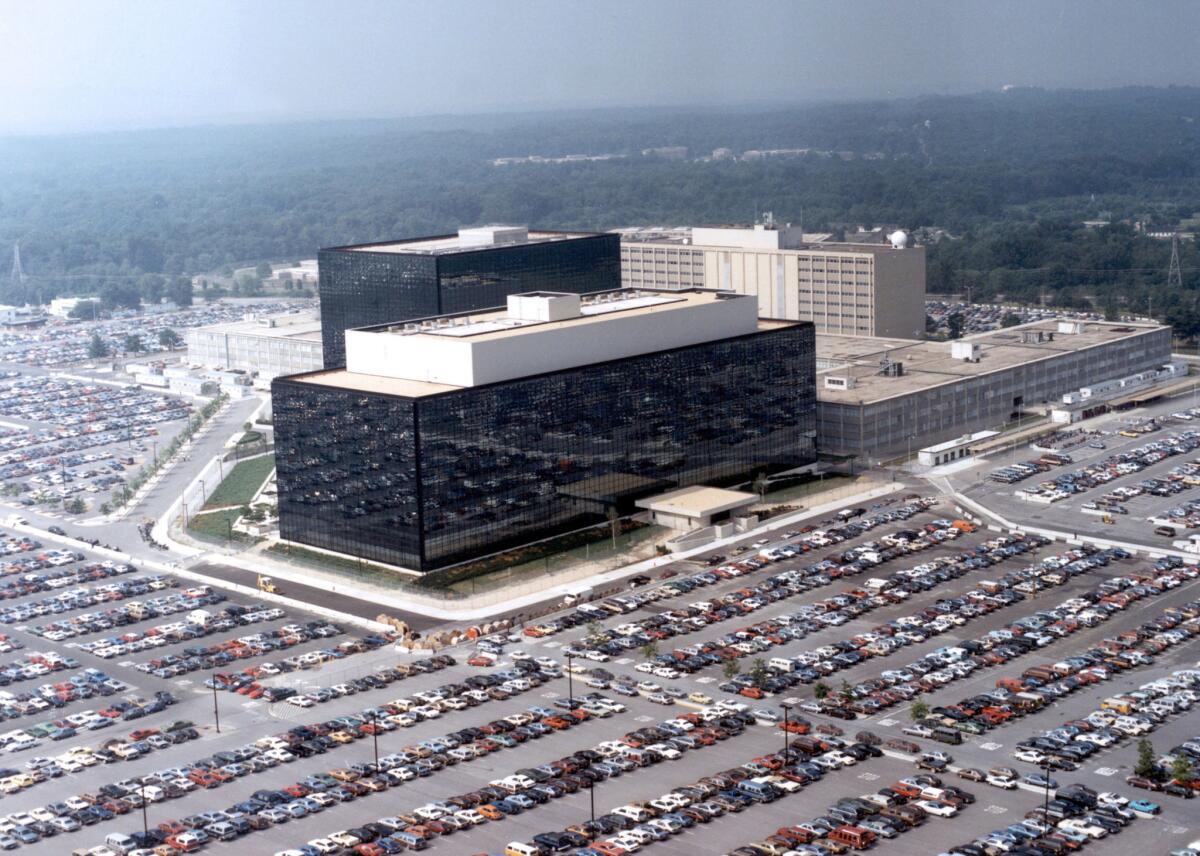Snowden’s latest leak: NSA shares unfiltered intelligence with Israel

- Share via
WASHINGTON -- The National Security Agency routinely shares “raw” intelligence data with Israel that can include sensitive information about Americans, according to the latest top-secret document leaked by former contractor Edward Snowden.
The 2009 document, a memorandum of understanding between the NSA and its Israeli counterpart, says the U.S. government regularly hands over intercepted communications that have not first been reviewed by U.S. analysts and are likely to contain phone calls and emails of U.S. citizens.
The agreement even allows for the possibility that intercepts given to Israel might include the communications of U.S. government officials, in which case Israel is supposed to destroy them immediately. Data on U.S. citizens who aren’t in the government, however, can be kept by Israel for up to a year, according to the document, first published Wednesday by Britain’s Guardian newspaper.
The agreement requires Israel to consult an NSA liaison officer when it finds data on Americans and to adhere to U.S. rules designed to protect the privacy of U.S. citizens, a process known as “minimization.” But it’s unclear how that requirement is monitored or enforced, since the agreement expressly says that it is not legally binding.
It’s no secret that the U.S. and Israel cooperate closely against intelligence targets of mutual interest, such as Syria and Iran. But the sharing of unprocessed electronic intercepts raises the specter that Israel could have used U.S. intelligence to carry out operations of which the United States disapproves. The Obama administration has condemned, for example, the assassinations of several Iranian nuclear scientists that many analysts believe Israel had a hand in.
“One of the biggest concerns in all intelligence sharing relationships is that the partner would use the data to take action that would result in killing somebody or doing something outside the scope of what our government might consider appropriate,” said a former senior NSA official who would not be named discussing classified information. “The worry is they might go off and bomb somebody and assassinate somebody.”
The U.S. decision to provide Israel unfiltered electronic intelligence feeds — feeds that almost inevitably sweep in American communications, given the way modern telecommunications traverse fiber optic wires — raises questions about why American officials would trust Israel to respect the privacy of U.S. citizens.
Unlike the allies who are part of a long-standing agreement to share signals intelligence with the United States — Britain, Canada, Australia and New Zealand — U.S. officials say Israel aggressively seeks to spy on the U.S. government.
Jonathan Pollard, a former U.S. naval intelligence analyst, is serving a life sentence in prison after being caught spying for Israel in the late 1980s. Secret U.S. intelligence budget documents revealed last month by Snowden list Israel as one of the most aggressive countries seeking to spy on the U.S., alongside China, Russia, Iran and Cuba.
The Guardian quoted from other NSA documents it did not publish in which U.S. officials expressed concerns about the intelligence-sharing arrangement.
“One of NSA’s biggest threats is actually from friendly intelligence services, like Israel,” an NSA official is quoted as writing. “There are parameters on what NSA shares with them, but the exchange is so robust, we sometimes share more than we intended.”
The former senior NSA official who spoke to the Los Angeles Times acknowledged that in some cases there is no way to police what another country does with intelligence it gets from the U.S. electronic spying agency.
“Sometimes, if you have people on site, then you can to a greater extent assert some oversight,” the official said. “But that doesn’t mean that they’re not going to segregate it and do what they have to do in their national interest. It’s a risk that somebody very senior in the agency decides to take.”
The reason that risk is taken with Israel, the former official said, is because Israel and the U.S. have so many shared foreign policy interests, and Israel in some cases has greater expertise in Middle Eastern languages and cultures.
“Managing the intel sharing relationship is always kind of a quid pro quo,” the official said. “One country may have access to certain communications that we can’t otherwise get, so there are decisions made at fairly high levels whether or not it’s worth it to share.”
ALSO:
India prosecutors seek death penalty in bus gang rape
Syrian war crimes escalating on both sides, U.N. probe finds
Gaza shortages worsen as Egyptian government destroys tunnels
Twitter: @KenDilanianLAT
More to Read
Sign up for Essential California
The most important California stories and recommendations in your inbox every morning.
You may occasionally receive promotional content from the Los Angeles Times.











